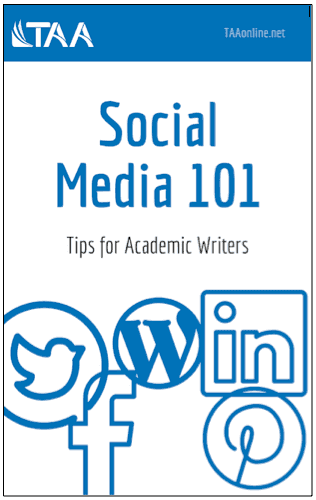Join TAA on Twitter on Friday, March 9 at 11 a.m. ET using the hashtag #AcWriChat for our latest TweetChat focused on building a network through blogs and social media.
Not on Twitter? Not sure what a “Tweet Chat” is? Follow us here (you won’t be able to actively participate, but you will be able to follow the chat live).





